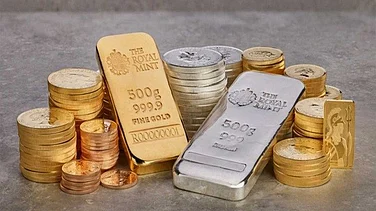The real GDP growth is projected at 7.8 per cent, compared with the advance estimate of 9.2 per cent for the fiscal year 2022-23, according to the rating agency CRISIL.
Notably, Finance Minister Nirmala Sitharaman, while presenting the union budget for the financial year 2022-23 on Tuesday, had projected India’s GDP growth at 9.2 per cent for this fiscal. The government has also increased the capital expenditure by 35.4 per cent to Rs 7.5 lakh crore.
CRISIL’s report ‘The Capex Gambit’ categorises infrastructure, railways, water, green energy and roadways as the winning sectors. It states that with a budgetary hike of 30%, infrastructure continues to be a bright spot in the union budget.
However, it states that despite raising the capital expenditure, the budget fails to address the major issue of consumption—both private consumption and household consumption.
“What it misses though, is the bridge — short term, consumption-raising measures to address the unequal recovery so far, tilted against large sections of the population particularly in the informal sector, still under pandemic-led duress,” the rating agency says.
It also points out the implications of investment spending in the budget.
The report says, “On the one hand, the lift in the consumption cycle is now tied to a broad-based pick-up in economic activity — which the government is trying to engineer through a focus on investments. Pursuing this path would enhance the growth potential and, it is hoped, will bring endurance to growth in the medium term.”
“On the other, refraining from giving direct consumption support could keep the pace of economic recovery slow in the short term,” it adds.
With respect to household consumption, which has been the worst performer of the GDP post-pandemic and continues to remain slow, the report states that direct support to consumption could have boosted faster growth. The rating agency also states that a heavy dose of Capex can help in improving the consumption demand and crowd in private investment.
On the investment front, the report says that despite having a scope to undertake investments, several large private corporates are deleveraging, owing to the continued demand uncertainty. As per CRISIL’s estimates, the PLI scheme will entail Rs 2.5 to Rs 3.0 lakh crore of Capex and generate incremental revenue of Rs 30-35 lakh crore over its tenure, auguring well for private Capex recovery.
On the commodity front, the report states that non-energy prices are expected to witness a dip as projected by the World Bank, which has projected the non-energy commodity prices to decline 2 per cent in 2022, after rising 31.9 per cent in 2021.
However, the energy prices especially that of crude oil is expected to remain high owing to the geopolitical tension between Russia and Ukraine. CRISIL forecasts Brent Crude price at $80 to $85 per barrel for 2022, compared to $70.44 per barrel in 2021, which in turn would curtail growth and can raise current account deficit and inflation.
Regarding fiscal deficit, CRISIL projects the fiscal deficit for FY2022-23 at 6.4 per cent of GDP, while stating that the fiscal deficit will be gradually brought down to 4.5 per cent by FY26.































